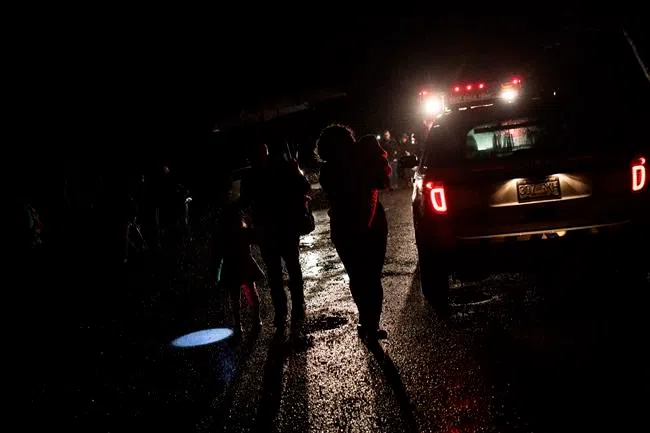
Tsunami fears send people in B.C. to higher ground; warning ends after quake
VANCOUVER — Sirens and officials banging on doors roused people from their sleep in the middle of the night Tuesday in British Columbia as a tsunami warning was issued along a large swath of the province’s coastline after a powerful earthquake in the Gulf of Alaska.
The warning was lifted about three hours later, ending a tense period for some as they made their way to safety on higher ground.
“I just heard the fire trucks going around, honking their horns and on the loud speaker saying there is a tsunami warning,” said Gillian Der, a University of British Columbia geography student who is studying in Queen Charlotte on Haida Gwaii. “It was very apocalyptic. So I was just running up the street to the muster station, up the big hill.”
Tofino Mayor Josie Osborne was ready in a few minutes to leave her home on the west coast of Vancouver Island after getting a warning text but said she pondered what shoes to wear in case she wouldn’t ever be back.
